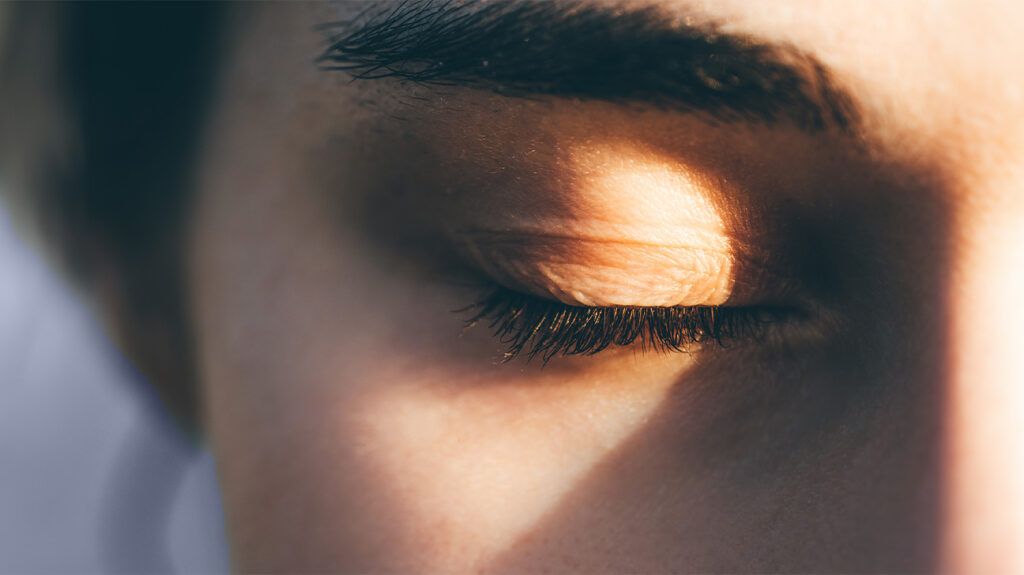Seeing sparkles during pregnancy can happen for various reasons, but it may be a sign of preeclampsia. If this occurs, contact a doctor immediately.
During pregnancy, people may develop vision changes and symptoms that are not cause for concern. However, seeing sparkles in the vision may be a sign of preeclampsia or diabetic retinopathy. Both are serious health conditions that require immediate medical attention.
This article will review the potential causes of sparkles in the vision, when to contact a doctor, and how pregnant people can care for their vision during pregnancy.

Seeing sparkles, spots, or stars during pregnancy requires immediate medical attention. These bright spots, called photopsia, differ from typical floaters and
However, seeing sparkles in the vision is not always a sign of a dangerous health condition. Some people may develop these symptoms due to other conditions,
If a person notices any flashing lights or sparkles in their vision during pregnancy, they must contact a doctor immediately. Other symptoms that may suggest preeclampsia or eclampsia and require immediate evaluation include:
- light sensitivity (photophobia)
- double vision (diplopia)
- partial vision loss or blind spots
- vision that appears dim
Vision changes during pregnancy can occur for many reasons,
After giving birth, the vision changes a person has experienced during pregnancy almost always disappear.
Certain conditions can cause pregnant people to see sparkles. The severity of these conditions can vary from mild to serious. The less serious conditions that may cause sparkles in the vision include:
However, sparkles in the vision may also be a sign of a more severe condition, such as:
- preeclampsia
- eclampsia
- diabetic retinopathy
- postural hypotension
cerebrovascular diseases , including stroke, brain bleeding, and brain aneurysms
During pregnancy, people may experience some common minor vision changes. This
- Dry eyes: Hormonal changes during pregnancy
often cause dry eyes due to reduced tear production or quality. This can create a feeling of sand in the eye, burning, itching, or sudden excessive watering. - Blurry vision: A pregnant person might experience increased nearsightedness, with distant objects appearing blurrier. These vision changes are temporary and do not often require prescription updates during pregnancy. However, in some cases, people may need mild changes to glasses or contact lens prescriptions.
- Eye puffiness: Pregnancy often causes body-wide swelling, as it causes water retention. This affects the legs and feet and causes eye puffiness, which may also restrict peripheral vision.
- Corneal changes: Pregnancy subtly alters cornea shape, causing corneal swelling and increasing irritation. Due to these changes and dry eyes, contact lenses may fit differently. Doctors may recommend switching to glasses during pregnancy as wearing contact lenses may feel uncomfortable.
Vision changes during pregnancy, such as seeing stars or blurry vision, might signal a serious condition. These symptoms could suggest preeclampsia or gestational diabetes, requiring immediate medical attention.
Preeclampsia
Preeclampsia is a condition causing high blood pressure
Seeing stars might indicate occipital lobe issues affecting vision. Without receiving appropriate treatment, preeclampsia can cause severe complications for the pregnant person and fetus. While preeclampsia can cause vision problems, most eye damage is temporary and resolves with blood pressure control.
Gestational diabetes
Gestational diabetes, which causes high blood sugar levels during pregnancy,
With gestational diabetes, the
- tunnel vision
- double vision
- increased eye pressure
Left untreated, the more severe cases of gestational diabetes or diabetic retinopathy can cause permanent eye problems or blindness.
People can use artificial tears multiple times daily for dry eye discomfort, but they should consult a healthcare professional before using over-the-counter remedies during pregnancy. Using eye drops might not be safe during pregnancy. Drinking fluids to maintain good hydration may also help with dry eyes.
Individuals should also consider reducing contact lens wear time, alternating between glasses and contacts, or switching to glasses entirely during pregnancy. For puffy eyes, applying cool compresses, reducing water retention by eating a low sodium diet, and reducing caffeine consumption may help.
If this does not relieve the symptoms, a person should consider contacting an eye specialist for other treatments. Depending on the symptoms a person experiences, they
Pregnant individuals should also always contact a doctor before making any drastic changes in their diet or routine to ensure it is safe for them and the fetus.
During pregnancy, people can expect minor vision changes such as blurry vision and dry eyes. However, it is important to recognize any vision changes that cause flashing lights, sparks, stars, light sensitivity, or double vision.
In that case, a person should immediately contact a doctor, as this may be a sign of a serious pregnancy complication, such as preeclampsia.
